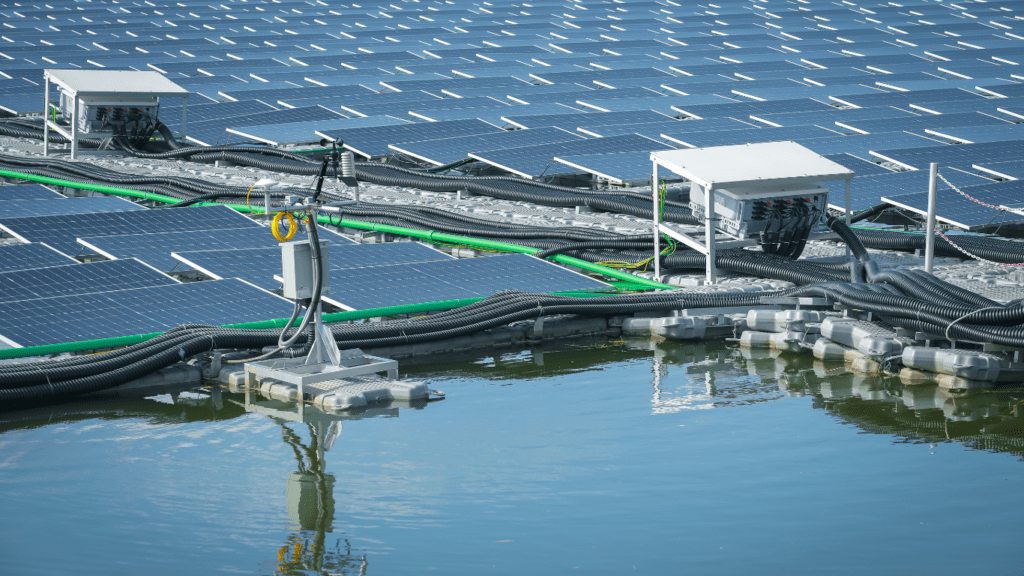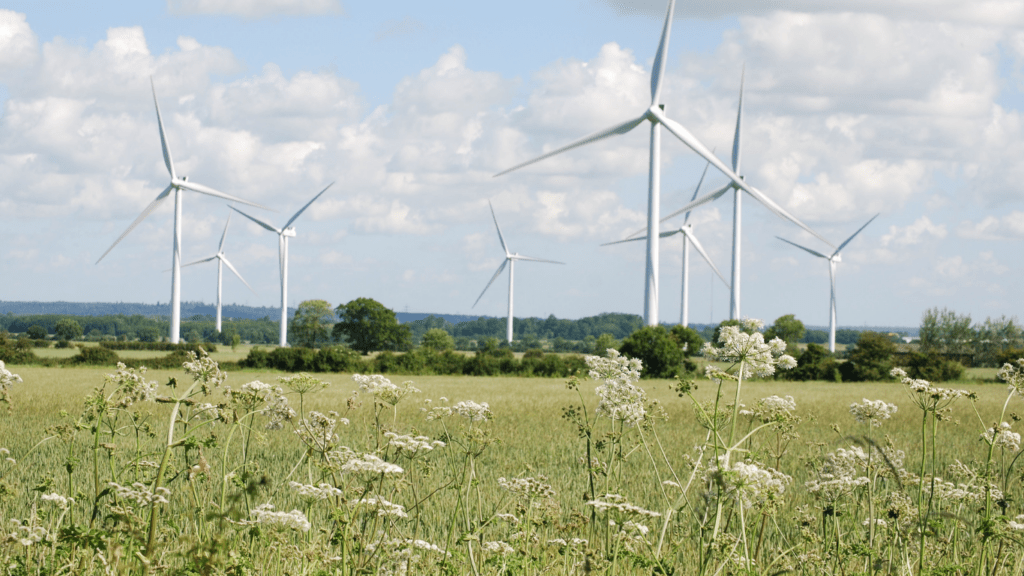Exploring the Impact of Green Entrepreneurs
Green entrepreneurs create significant change by developing sustainable solutions to environmental issues. Their efforts impact various sectors such as innovation and the economy.
The Role of Innovation in Sustainability
Innovation in sustainability transforms traditional practices into eco-friendly methods. For example, renewable energy startups develop solar panels with higher efficiency and battery storage solutions to complement them.
Entrepreneurs in waste management design zero-waste products, using biodegradable materials. Fashion industry leaders create clothing lines from recycled fabrics, reducing textile waste. Each initiative contributes to a larger movement towards reducing the carbon footprint.
Economic Benefits of Going Green
- Going green offers substantial economic benefits.
- Companies implementing sustainable practices often see reduced operational costs by using renewable energy.
- Businesses focusing on zero-waste products attract eco-conscious consumers, gaining a market edge.
- Governments often provide incentives for adopting green technologies, reducing initial investment costs.
- Green jobs also emerge in renewable energy, sustainable agriculture, and eco-friendly manufacturing, boosting the economy while promoting environmental responsibility.
Profiles of Leading Eco-Innovators
Leading eco-innovators are addressing environmental challenges with groundbreaking solutions. These pioneers focus on renewable energy and sustainable manufacturing practices.
Innovations in Renewable Energy

High-efficiency solar panels represent a significant advancement. Elon Musk, through Tesla’s SolarCity, revolutionized the market by integrating solar roofs and energy storage.
SolarCity’s technology offers homeowners a comprehensive clean energy solution, reducing reliance on non-renewable resources. According to SEIA, solar installations increased by 43% in 2021 due to such innovations.
Wind energy has seen notable contributions from innovators. One prominent figure is Sriya Chakravarti, the CEO of GreenWind Energy.
By deploying vertical-axis wind turbines, her company maximizes energy capture even in low-wind conditions. These turbines are compact, low-maintenance, and suitable for urban environments, making renewable energy more accessible.
Hydropower has not been left behind. Gilad Kulik, founder of HydroLite, developed portable hydropower generators for remote communities.
These generators provide sustainable electricity in off-grid areas, improving living standards and reducing dependence on fossil fuels. Innovations like these have broadened the reach of renewable energy solutions.
Sustainable Practices in Manufacturing
Zero-waste products are a cornerstone of sustainable manufacturing. Lauren Singer, founder of Package Free, leads in this domain. Her company offers everyday essentials without plastic packaging.
By partnering with eco-friendly brands, Singer promotes a zero-waste lifestyle. This initiative has prevented over 2 million pieces of plastic from reaching landfills.
Recycled clothing lines have transformed the fashion industry. Stella McCartney, a renowned designer, integrates sustainable materials into her collections.
McCartney’s work showcases that high fashion and sustainability can coexist. By using recycled fabrics and innovative dyeing processes, her brand significantly reduces environmental impact.
Eco-friendly packaging has seen substantial progress. David Katz, founder of The Plastic Bank, works on reducing ocean plastics. His initiative turns waste into currency in developing countries.
This model incentivizes recycling and creates a sustainable cycle. Katz’s efforts have resulted in the collection of over 1 billion plastic bottles.
Implementing sustainable manufacturing practices not only reduces environmental impact but also enhances brand reputation and consumer trust. Leading green entrepreneurs demonstrate that innovation and sustainability can drive economic success while addressing pressing environmental concerns.
Challenges Faced by Green Entrepreneurs
Green entrepreneurs encounter various challenges that can impede their progress and innovation. These obstacles range from stringent regulations to financial constraints, each requiring unique strategies to overcome.
Regulatory Hurdles
Navigating regulatory hurdles can be particularly daunting for green entrepreneurs. Authorities often impose strict environmental regulations that, although necessary for environmental protection, can complicate the compliance process.
For example, renewable energy startups may need to secure multiple permits before commencing operations. These permits often involve lengthy approval times and complex documentation.
Moreover, regulations can vary significantly by region, requiring local and international compliance knowledge.
Financial Impediments
Securing financing poses a significant challenge for green entrepreneurs. Sustainable ventures often have higher upfront costs, especially in technology development and procurement of eco-friendly materials.
Traditional investors may be hesitant to fund these initiatives due to perceived risks and longer return on investment periods.
For example, obtaining capital for developing high-efficiency solar panels can be costly and require significant investment in research and development.
Grants and subsidies are available but are fiercely competitive, often requiring thorough proposals and time-consuming application processes.
Future Trends in Green Entrepreneurship
Green entrepreneurship continues evolving, fueled by technological advancements and expanding markets for eco-friendly products. Entrepreneurs in this field drive innovation and create sustainable business models.
Technological Advancements
Technological advancements shape green entrepreneurship, making sustainable solutions more accessible and efficient.
Developments in renewable energy storage, like Tesla’s Powerwall, enhance energy reliability and reduce dependency on non-renewable sources. Improved battery technology extends the life of electric vehicles, increasing their appeal.
Artificial intelligence (AI) optimizes energy consumption, reducing waste and costs. Entrepreneurs leverage AI to develop smart grids and energy-efficient systems.
Material science innovations lead to eco-friendly alternatives. Biodegradable materials, such as plant-based plastics, replace traditional plastics, reducing pollution.
Carbon capture and utilization technologies transform CO2 emissions into useful products. Entrepreneurs explore algae-based biofuels, promising a renewable energy source with lower environmental impact.
Expanding Markets for Eco-Friendly Products
Demand for eco-friendly products grows as consumers become more environmentally conscious. Markets for organic food, sustainable fashion, and green home products expand rapidly.
Entrepreneurs seize opportunities by creating products that meet these demands while emphasizing transparency and eco-friendly practices.
Certifications like LEED for buildings and USDA Organic for food boost consumer trust and marketability. Subscription services, like those offered by TerraCycle, cater to consumers seeking convenient, sustainable options.
Entrepreneurs tap into niche markets, like:
- zero-waste packaging
- cruelty-free beauty products
driving further growth.
Overall, green entrepreneurs adapt to technological advancements and market expansions, pushing the boundaries of sustainability and innovation.
 Heather Smithkers - Innovative Eco-Author at Green Commerce Haven
Heather Smithkers is a creative and forward-thinking author at Green Commerce Haven, where she brings a unique perspective to the world of sustainability. With a flair for storytelling and a deep commitment to environmental advocacy, Heather crafts engaging content that resonates with eco-conscious readers. Her work delves into the latest trends in green startups, organic products, and sustainable living, offering fresh insights and practical advice. Heather’s innovative approach to writing helps demystify complex environmental topics, making them accessible and inspiring to a broad audience.
Heather Smithkers - Innovative Eco-Author at Green Commerce Haven
Heather Smithkers is a creative and forward-thinking author at Green Commerce Haven, where she brings a unique perspective to the world of sustainability. With a flair for storytelling and a deep commitment to environmental advocacy, Heather crafts engaging content that resonates with eco-conscious readers. Her work delves into the latest trends in green startups, organic products, and sustainable living, offering fresh insights and practical advice. Heather’s innovative approach to writing helps demystify complex environmental topics, making them accessible and inspiring to a broad audience.
